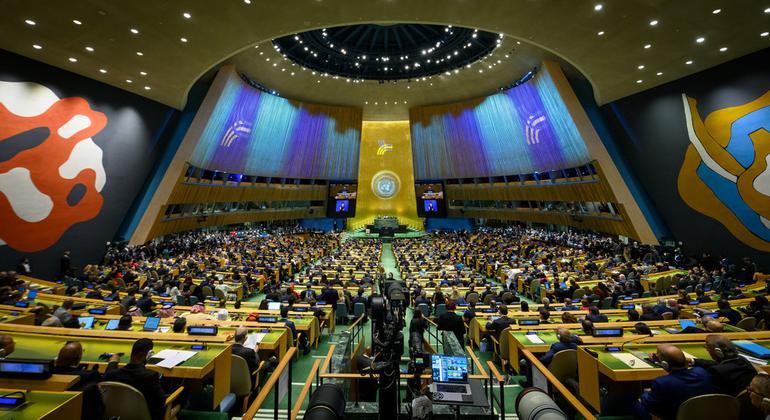The United Nations General Assembly recently adopted a groundbreaking Pact for the Future, along with its annexes, the Global Digital Compact and the Declaration on Future Generations. Despite a last-minute proposal for an amendment by certain countries, including Russia, Iran, the Democratic People’s Republic of Korea (DPRK), and Syria, the Pact was adopted by consensus. The proposed amendment aimed to emphasize non-intervention in issues of national sovereignty and the primacy of intergovernmental deliberation, potentially downplaying the role of civil society and private sector interests. However, the 193-member Assembly decided not to act on the proposal, ultimately rejecting it.
The Pact for the Future outlines five broad focus areas: sustainable development, international peace and security, science and technology, youth and future generations, and transforming global governance. It emphasizes the urgent need for global cooperation to address the challenges of the 21st century, particularly as traditional institutions have struggled to find solutions. By endorsing the Pact, UN Member States committed to turbocharging the implementation of the Sustainable Development Goals (SDGs) and the Paris Agreement on climate change, engaging young people in decision-making processes, strengthening partnerships with various stakeholders, promoting peaceful societies, protecting civilians in armed conflict, and advancing commitments on women, peace, and security.
The Global Digital Compact, another key component of the adopted agreements, represents the first worldwide agreement on the international regulation of artificial intelligence (AI). Emphasizing that technology should benefit everyone, the Compact sets out commitments to ensure that digital technologies contribute to sustainable development and human rights while addressing risks such as digital divides, cybersecurity, and the misuse of technology. It aims to bridge the digital divide, promote responsible use of AI technologies, foster global cooperation on AI capabilities and security threats, establish a worldwide Scientific Panel on AI, and facilitate international dialogue on AI governance within the UN.
The Declaration on Future Generations focuses on securing the well-being of future generations and emphasizes the inclusion of their interests in decision-making processes. It underscores the importance of environmental protection, intergenerational equity, and the consideration of long-term consequences of present actions. These agreements collectively represent a significant step towards addressing global challenges and shaping a more sustainable and inclusive future for all.
During the Summit of the Future, Secretary-General Guterres addressed the importance of these agreements in guiding international efforts towards a more equitable and sustainable world. The adoption of the Pact for the Future, the Global Digital Compact, and the Declaration on Future Generations marks a significant milestone in global governance and sets the stage for enhanced cooperation and action on key issues facing humanity.
Overall, the adoption of these agreements reflects a shared commitment among UN Member States to work together towards a more sustainable, peaceful, and inclusive future for all. By endorsing these frameworks, countries have pledged to prioritize sustainable development, technological innovation, intergenerational equity, and global cooperation in addressing the complex challenges of the modern world. The agreements signal a new era of collaboration and unity in addressing pressing issues and advancing the well-being of current and future generations.









